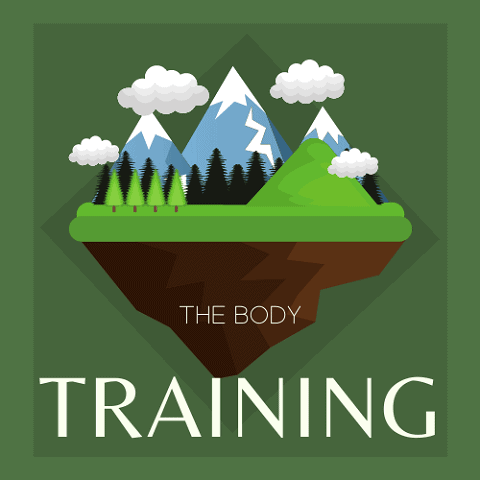Fact checked by Steven Lines, lifelong Hunter and Outdoorsman .
.
People often want to know whether crossbows use special broadheads. Some broadheads are packaged especially for crossbows, but they do not look very different inside the package. The broadhead is the part of the bolt or arrow that penetrates the game. You can choose different ones for different types of hunting. The question is, “Are broadheads for crossbows different ?”
?”
The fact is that there is no real difference between broadheads for crossbows and regular broadheads. Although manufacturers tend to include “crossbow” on heavier broadheads’ labels, they are heavier broadheads that might have larger blades to take advantage of the velocity produced by your crossbow.
They do sell broadheads labeled this way. Continue reading to learn all about broadheads for crossbows.

In this post, we'll cover:
Crossbow Broadheads Are Heavier
One of the benefits of using a crossbow is that it delivers more kinetic energy. This makes it more powerful, so it can handle a heavier bolt without sacrificing accuracy.
You can use this energy for penetration, which is better achieved with a heavier bolt. If you have a heavier bolt, you will want a heavier broadhead to keep it balanced.
Most heavier arrows are sold for crossbows because they are capable of handling the weight. This is why manufacturers market heavier broadheads with a higher grain for crossbows.
Broadhead Weight Is Measured in Grain
You may have seen the term 150-grain broadhead. The number refers to its weight. The higher the number, the heavier it is. Manufacturers will often sell different broadheads of different grains, and the higher grain broadheads are usually marketed as crossbow broadheads.
A 125- or 150-grain broadhead is heavier and often used for crossbows. This heavier weight will give you higher accuracy because it helps keep the heavier bolt balanced to fly straight. Crossbow bolts are shorter, so they are not as aerodynamic as regular arrows.
You can get broadheads in a range of grains , starting at 75 grains and going up to 300 grains. It is important to choose the grain that best balances your arrow and your tip. For example, if the broadhead’s grain is greater than the grain of the tip, the arrow’s trajectory will drop.
, starting at 75 grains and going up to 300 grains. It is important to choose the grain that best balances your arrow and your tip. For example, if the broadhead’s grain is greater than the grain of the tip, the arrow’s trajectory will drop.
What Are the Types of Broadheads?
There are two primary types of broadheads, including fixed blades and mechanical blades. Both are available for crossbows, and each has advantages and disadvantages.
Mechanical blade broadheads usually travel a little straighter, while fixed blade broadheads are more commonly chosen. The mechanical blade will open on impact, which produces a wider cutting diameter.
A mechanical broadhead is usually more stable and accurate, and it creates a larger wound that produces more blood for tracking. However, they can suffer from mechanical failure by opening mid-flight or failing to open at all.
A fixed blade broadhead gives you greater penetration, and you do not need to be concerned about a mechanical failure. However, they are not as accurate, especially at long distances.
If you use a mechanical broadhead, you will want to consider using a broadhead marked for a crossbow. The reason is that the heavier broadhead will better balance this type of arrow.
Do You Need Special Broadheads for Your Crossbow?
There is no real difference between broadheads and crossbow broadheads. That said, you can find broadheads that are made in such a way that they work better with your crossbow.
When you see crossbow added to the packaging for broadbands, the primary difference is that they are heavier. For example, you might find a 100-grain broadhead in one package, and a 125-grain broadhead next to it packaged as a crossbow broadhead.
There can also be a slight difference in the mechanical blade option. These blades are designed to open inside the animal, and you can find them with tighter springs to prevent this from happening.
They occasionally have longer blades as well, which work well with the higher velocity. If you use mechanical blades on your broadheads, you will benefit from choosing those labeled for crossbows.
However, if you use the fixed blade version, you do not need to choose special crossbow broadheads. The key is to choose the weight that works best with your crossbow and your bolt. You want to make sure that it is balanced and use the kinetic energy of the crossbow efficiently.
How to Choose the Best Broadhead for Your Crossbow
There are so many different broadheads available that it can be difficult to find the right one. You can look at three different qualities: aerodynamics, the surface area of the wound, and penetration. You need the broadhead to perform well in all three areas.
You need to check your local laws and regulations because laws often govern the minimum cut diameter, and some areas ban mechanical broadheads. If you can use either fixed or mechanical broadheads, you should choose the one you prefer.
Fixed broadheads are easy to use for practice, and they are durable and reliable. They are also easier to sharpen and clean. However, they have a smaller cut diameter, and the exposed blades can grow dull more easily during transport. Also, they can be affected by the wind.
A mechanical blade will be more accurate from further away and have a large cutting diameter. They also have a more consistent flight line. You need to be careful and ensure that your crossbow offers enough kinetic energy to create the momentum you need for proper penetration. They are more difficult to clean and maintain.
Should You Buy Broadheads That Are Rated for Crossbows?
Often, the answer to this question is yes. These broadheads aren’t necessarily made differently from other broadheads, but they are heavier and made to handle the crossbow’s power and speed.
You need to determine the weight the manufacturer recommends for your crossbow and get the best weight. It would help if you ensured that the broadhead is balanced with the bolt to focus on the two together.
It is important to remember that your decision involves more than finding a broadhead with the word crossbow on the label. You need to make sure that it works well with your bolt, balances it, and is the right weight for your crossbow.
Your goal is to ensure that you can harvest the animal quickly and effectively while hunting. This involves combining the broadhead with the right bolt and the right tip.
Final Words
You can find broadheads packaged as crossbow broadheads, so you may wonder if you have to use them for your crossbow. There is no special difference between crossbow broadheads and standard broadheads, although the crossbow broadheads usually are heavier.
However, crossbow broadheads are designed to work more efficiently with crossbows. They are heavier and pair well with the bolts you use, which are also heavier than arrows.
are designed to work more efficiently with crossbows. They are heavier and pair well with the bolts you use, which are also heavier than arrows.
It is important to make sure that the broadhead balances out your bolt to travel straight and hit your target. Choosing the best broadhead for your crossbow will give you the best experience when hunting.

Steven Lines is a hunter and outdoorsman from Safford, Arizona, USA. Since he was a child, he has been hunting and fishing and has over 20 years of outdoor experience. Steven works as a hunting guide in Arizona during his spare time and runs a Youtube channel dedicated to sharing his outdoor adventures with others.
dedicated to sharing his outdoor adventures with others.
